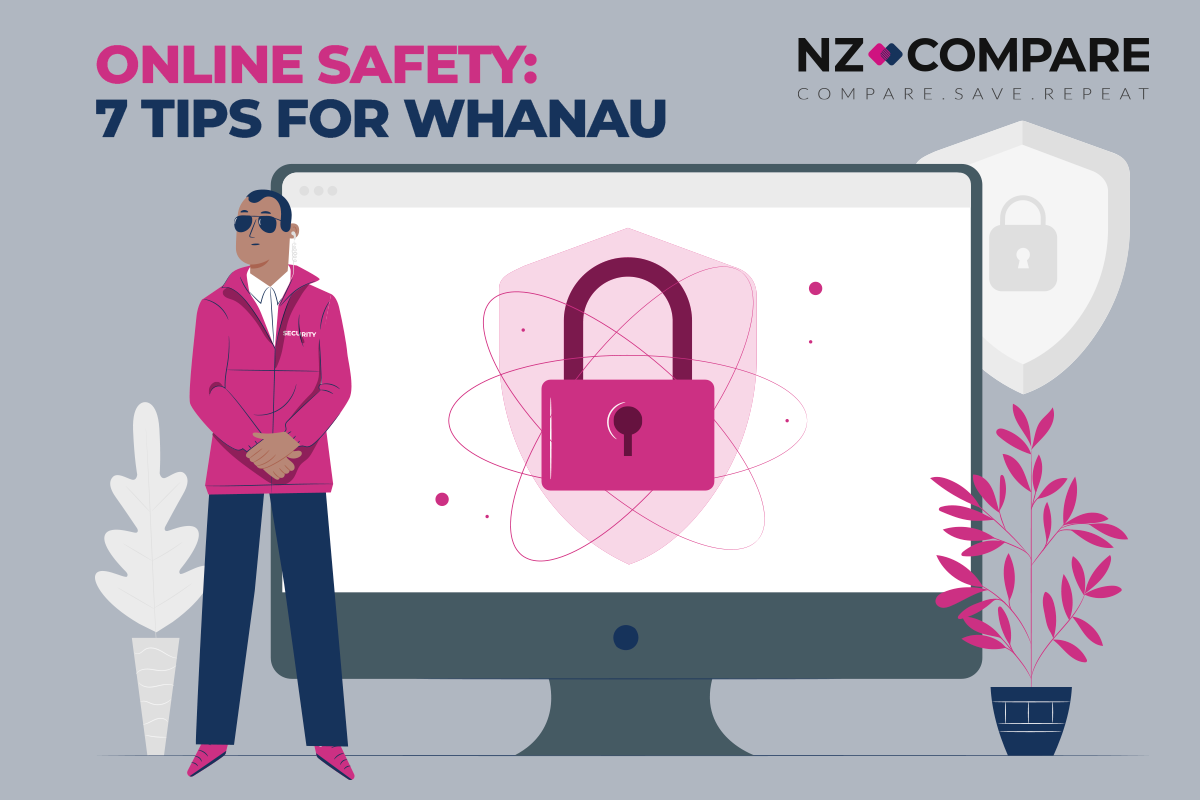Online safety is vital in this day and age. Check out our tips for keeping the family safe online!
With the ever-changing and ever-evolving digital and technological landscape, young people of Aotearoa are going to use devices and the internet more often day-to-day. It is critical that whanau understand how to keep themselves safe in this online world. You don’t have to be an expert at technology to know how to help your kids. You have the advantage of life experience and wisdom, which will help you guide your children through the online landscape.
We have put together a list of online safety tips for parents to consider and implement as their child embarks onto the digital world journey.
1. Be Aware of Online Challenges
While the digital world is rife with wonderful opportunities for our young people, it does, of course, pose risks for safety. However, young people increasingly flock to online spaces to explore their identity, their communities, and relationships, challenge societal norms and boundaries, and practise a range of behaviours.
Researchers at Netsafe New Zealand have identified that almost 19% of teens in Aotearoa have encountered an unwanted digital communication.
Some of the key challenges young people face online, and that parents must understand are:
- Online bullying
- Unwanted contact – when a person is approached by a stranger or someone they have not consented to contact with.
- Inappropriate content
2. Understand your Child’s Online Activities
Take the time to learn your child’s online activities, including the apps and sites they like, their network, the information they share, and any media or games they enjoy. Regular and friendly conversations at home will help reduce the impact of any mishaps online. It will also help make it easier to tackle challenges together if they arise.
3. Learn the Technology
Explore websites, apps and technology that your child might use. Keep informed so that you can understand digital challenges as best as possible, and guide your child through any that they encounter. It will also help you best equip your child to navigate the internet as safely as possible.
4. Set Expectations
Have an open discussion with your child about the appropriate behaviours, connections and conversations that they can engage with online. Make sure they understand the permanence of the digital footprint – for example, if they share a silly selfie on Instagram, it can stay on the internet forever and be spread without their consent. It can be very difficult to permanently remove these posts entirely from the internet. The approaches to online spaces will depend on the age of the child and what you feel comfortable with discussing. Help them understand the benefits and challenges of the online world and ensure they know how and when to seek help and support from you.
5. Reinforce the Importance of Privacy and Kindness
Ensure passwords and pin codes are secret and secure and not shared with others online. Keep personal information private. Talk to your child about conversations with strangers and how they should address these situations. Role model and teach kindness and respect to people online. For example, be polite and do not leave unkind comments on other’s posts.
6. Make a Plan
Create an easy, quick, and reliable set of options that your child can turn to if they encounter online challenges. Ensure you are a safe place to come to by focusing on fixing the problem, rather than punishing or taking devices.
7. Invest in a VPN
Your whanau may find themselves using public routers when you are out and about. While these are convenient ways to stay connected, public routers can pose security risks. Consider investing in a VPN to protect your devices and security from malicious hackers.



